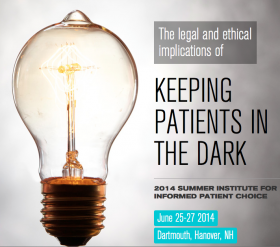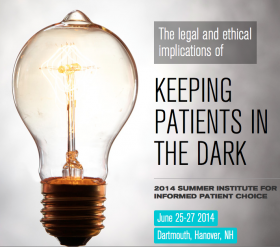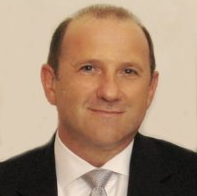Back when I slaved in the depths of Hunter Thompson’s “shallow money trench,”we had a phrase we deployed whenever we thought the grownups were keeping us in the dark. We would say we’d been sent to Mushroom Land, where one is kept in the dark, the better to keep us from making, or spotting, trouble.
Back when I slaved in the depths of Hunter Thompson’s “shallow money trench,”we had a phrase we deployed whenever we thought the grownups were keeping us in the dark. We would say we’d been sent to Mushroom Land, where one is kept in the dark, the better to keep us from making, or spotting, trouble.
The medical-industrial complex has, for eons, kept its customers (commonly called “patients”) in Mushroom Land pretty consistently. For a very long time, that was facilitated by a lack of access to scientific knowledge for the common human, but that started to shift in the 19th and 20th centuries, as public education rose across most parts of the globe. Of course, “math phobia” and “science denial” are still pernicious little devils, but the average person with an 8th grade literacy level and an internet connection can find out about just about anything.
 I had the privilege of being awarded a seat at Dartmouth’s 2014 Summer Institute for Informed Patient Choice, or SIIPC14 for short, in late June 2014 (last week, as I write this). The purpose of the conference was to chew on topics and issues related to not keeping patients in the dark when it comes to making informed decisions about their health, their healthcare, and their relationships to the medical care teams they work with to gain or retain “best health.” This event had some serious meat on its bones, both in reputational throw-weight of the presenters and breadth of stakeholder groups represented in the audience.
I had the privilege of being awarded a seat at Dartmouth’s 2014 Summer Institute for Informed Patient Choice, or SIIPC14 for short, in late June 2014 (last week, as I write this). The purpose of the conference was to chew on topics and issues related to not keeping patients in the dark when it comes to making informed decisions about their health, their healthcare, and their relationships to the medical care teams they work with to gain or retain “best health.” This event had some serious meat on its bones, both in reputational throw-weight of the presenters and breadth of stakeholder groups represented in the audience.
Dartmouth itself is no stranger to uber-smart-ness, particularly in healthcare, given the work and thinking that emerges from Geisel School of Medicine and the Dartmouth-Hitchcock Medical Center (one of 23 Pioneer ACOs in the US). The conference was put together by Glyn Elwyn, an MD who is on the faculty at Dartmouth’s Center for Health Care Delivery Science, and its Institute for Health Policy and Clinical Practice, along with his merry band of bright eyed post-grads and other smart folks.
I’m not going to walk you through the whole program, because who wants to read 15,000 words? What I will do is walk you through a very short list of the presentations that cast the longest memory shadow, for me at least, in the conference aftermath.
Dr. Jack Wennberg
How I had not known of Wennberg’s work is a mystery, but it doesn’t need solving ‘cause I now not only know about it, I’m officially an evangelist for it. He’s one of the people behind the Dartmouth Atlas (if you follow that link, pack a lunch – it’s a glorious time-sink for healthcare geeks), and has participated in more thought-provoking and system-transforming research than pretty much anyone I’ve met in my health policy wonk travels to date. His presentation drilled in on what he calls the “Glover phenomenon,” referring to the research of James Alison Glover, a British physician who studied medical practice variation region to region in the UK, with some interesting results that essentially boil down to (my paraphrase) “everyone’s doing it, so I will, too.” Dr. Wennberg’s talk was the perfect scene-setting to kick off the conference, because his work, inspired by Glover’s, points up the price of keeping patients in the dark about why their medical care team is recommending any particular course of treatment for [whatever]. Simply “because I said so” – which was the prescriptive rule in medicine for … ever – is a really bad idea if you’re trying to reduce unnecessary treatments, control costs, or create a healthcare system that runs on scientific evidence, not patriarchy. Shared decision making requires that all participating in that decision have a grasp of all the facts, including possible outcomes.
Dr. Al Mulley
“The care they [patients] need and no less, want and no more.” That’s a quote from Dr. Mulley’s involvement with the Salzburg Global Seminar in 2012, and is a pretty good anchor for his message at SIIPC, which was titled “The Silent Epidemic of Misdiagnosis.” That misdiagnosis can come from misattribution of the patient’s outcome preferences (do doctors even ASK most of the time?), which then puts both patient and care team on a trip down the rabbit hole. This approach causes everything from unnecessary surgery to unwanted extraordinary measures at the end of life to who-knows-HOW-many unneeded pharmacological “interventions.” One quote from Mulley’s talk really stands out for me: “Doctors talk about the science of medicine to preserve their authority and the art of medicine to preserve their autonomy.” Shifting that boulder will take some persistent pushback from patients who want to work with participatory medicine practitioners. (Alliteration-itis.) Click this link to read a paper by Dr. Mulley, Dr. Glyn Elwyn, and a colleague on why patient preferences matter.
Dr. Elliott Fisher
I met Elliott Fisher at Health Datapalooza in DC in early June of this year, and sat pretty much at his feet (in the 2nd row) as he delivered the opening keynote at that event. Since he’s the director of Dartmouth’s Institute for Health Policy & Clinical Practice, I knew he’d be presenting at SIIPC and looked forward to hearing what he had to say. As an MD with deep experience working to build Dartmouth-Hitchcock’s Accountable Care Organization (ACO), Fisher has a 3D view of the healthcare delivery landscape. He rings all my favorite changes, particularly in the areas of cost and quality of care delivered to patients. My favorite slide from his deck said, simply, “No outcome, no income.” In the gold rush that US healthcare has been since … forever, now sucking up close to 20% of GDP – and making the defense lobby look like homeless people in the process – tying money to outcomes, and to the patient preferences that define those outcomes, seems downright revolutionary. Since I am myself a revolutionary when it comes to pushing for healthcare system transformation, I’m thinking of Elliott Fisher as a brother from another mother, on this topic at least.
BUT … (and there are many buts in this story)
If the smart folks running the Dartmouth thinkiness on healthcare system transformation are smart enough to invite the wide panoply of players who attended this conference to listen, and to talk about, how that transformation might be driven … where’s some outcome there? There was much conversation traffic on Twitter throughout the conference, anchored by the hashtag #SIIPC14 (clicking that link will take you to Symplur’s Healthcare Hashtag Project, where you can parse the SIIPC conversation). Much of the undertone of that conversation was “OK, so what’s going to be DONE here?”
From the e-patient perspective, that’s a perpetually unanswered question at ALL healthcare related conferences, even our own. As individuals, and even as groups (professional and consumer), we’re arrayed against what I call the K Street Mafia, who I called out during the Q&A after Elliott Fisher’s talk on the last day of the conference. I also said that silos that were the greatest danger to the health of all mankind used to be missile silos, which risked global destruction. Now it’s just silos of doctors, data geeks, revenue cycle management types, policy wallahs, software developers, patients, and a partridge in a pear tree. I said, “End the silos – can I get an AMEN?” To which the assemblage responded with a rousing “AMEN!”
But … did it move the needle, any needle, at all? Even though gatherings like SIIPC are dedicated to including the patient voice, the scales are not at all balanced when it comes to the power matrix in healthcare. As I said in a long conversation on my Facebook wall in the aftermath of my trip to Dartmouth, “It is not lost on me that, in most of the rooms where I am invited to share my recommendations for system transformation, I’m paying my own way amongst a large cohort of well-dressed […] folks on expense accounts.”
This is IN NO WAY meant to snipe at the great folks who put on the Dartmouth conference, and who invited me to attend. I was delighted to be there, and am deeply grateful for the experience. I met some great people, and connected with some others that I already knew. But I’ve been doing this for a while now. When will the number 210,000 (the number of avoidable medical error deaths in the US annually) go back to being just another number? When will the cost of care stop being a game of Where’s Waldo? When will expert patients be seen as equals when it comes to getting paid for the work we do to drive system transformation?
The plethora of horror stories that emerge from the “medical professional” ranks about their own terrible experiences when they’re on the other end of the scalpel from their usual position hasn’t made a dent in the stone wall that is the medical-industrial complex’s change management rodeo. We all have to work on this. The outcome is still uncertain, because institutionally, healthcare seems to be dedicated to “business as usual” in spite of all efforts to shift that thinking. We – the change agents – are arrayed against some powerful forces with very deep pockets. Are we stuck in a bad remake of “Groundhog Day”? Only time will tell, but this e-patient is very impatient. She’s been doing this for more than 20 years, and she hasn’t seen much “transformation” yet.








